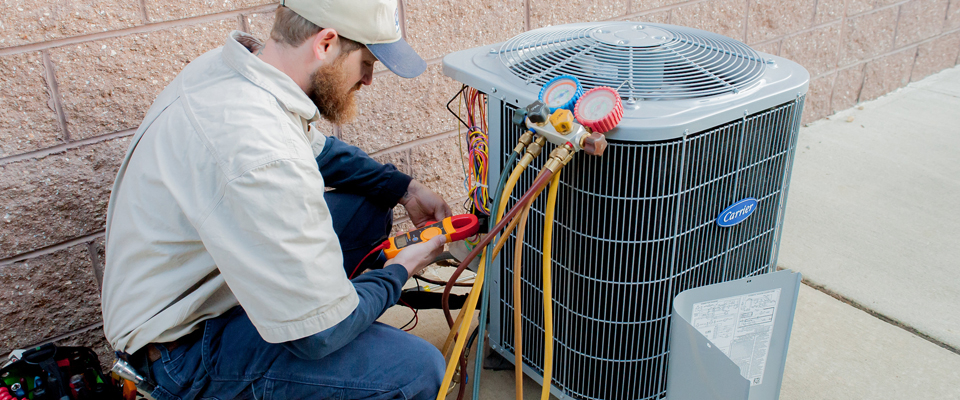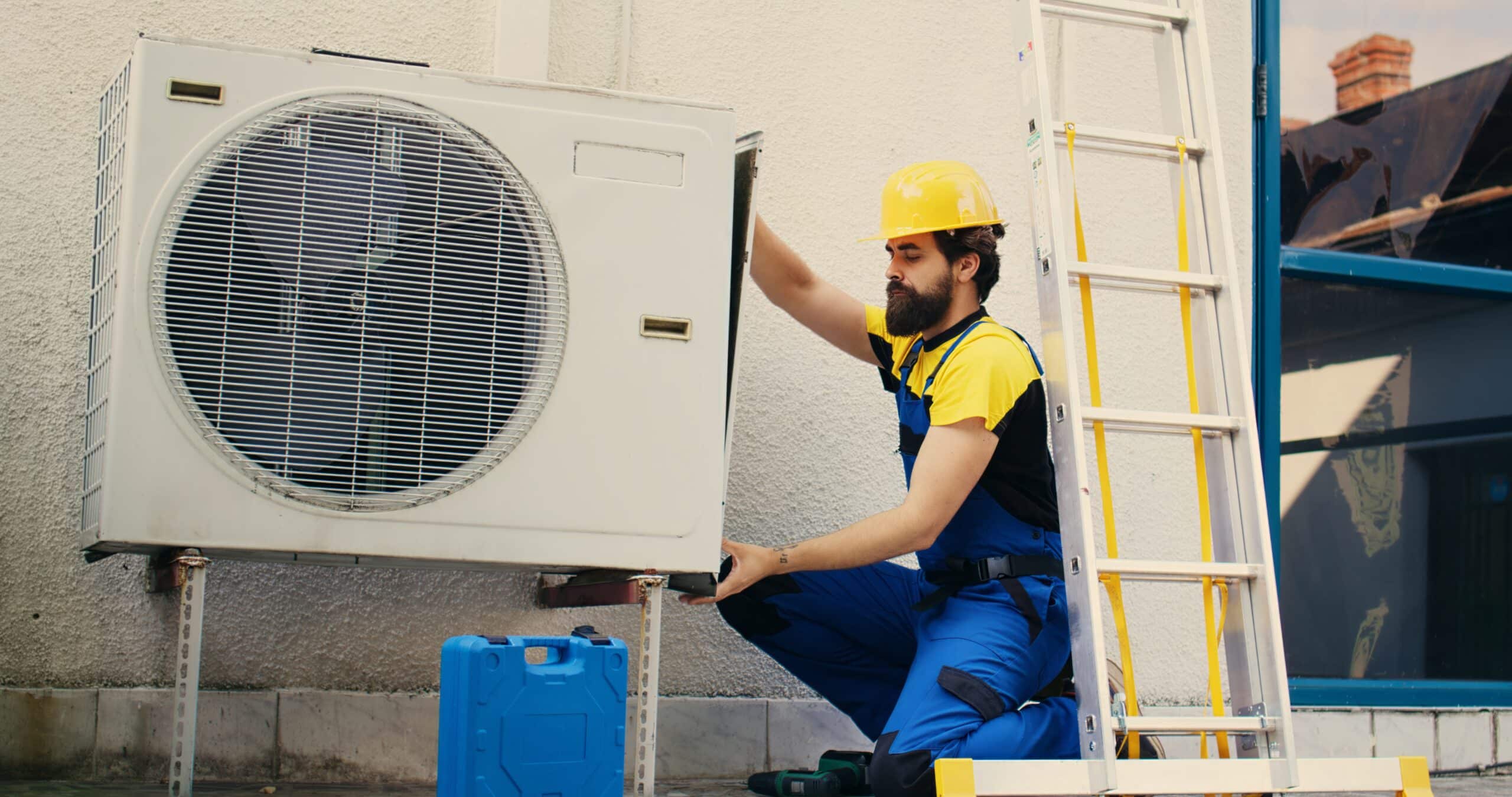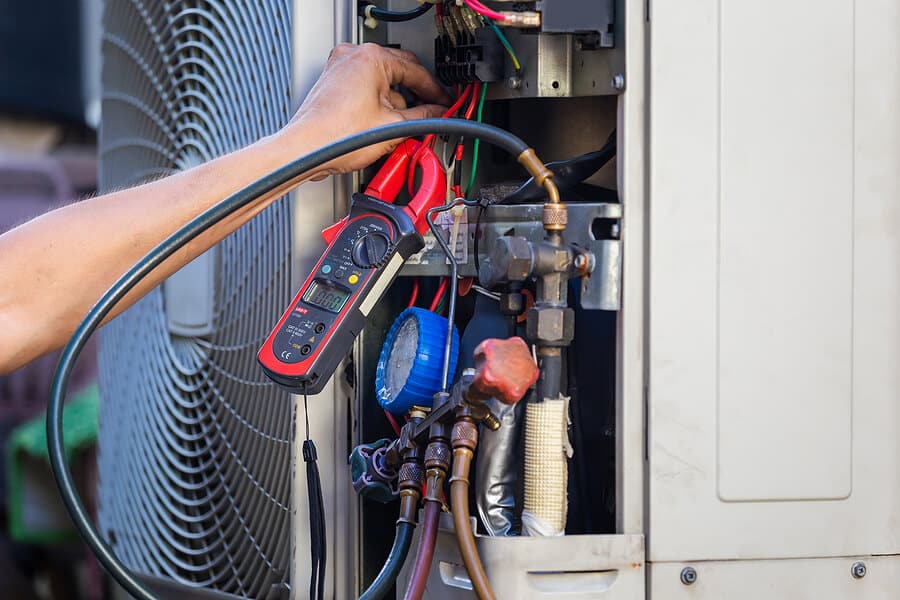Keep Your HVAC System Optimal with Help from DMAKS HVAC.
Keep Your HVAC System Optimal with Help from DMAKS HVAC.
Blog Article
Energy-Efficient Heating And Cooling Systems to Reduce Utility Bills
As power expenses proceed to rise, the importance of energy-efficient A/c systems becomes significantly obvious. These systems not just guarantee significant savings on utility bills but also contribute to a much more lasting future by reducing energy intake.
Advantages of Energy-Efficient A/c Solutions
Energy-efficient Cooling and heating systems use various benefits that expand past mere expense savings. By consuming much less power, these systems add to decrease greenhouse gas emissions, aiding to combat environment modification and promote sustainability.
Additionally, energy-efficient a/c systems typically provide boosted comfort degrees. Many of these systems feature innovative modern technology that permits better temperature level control and boosted air top quality (DMAKS HVAC). This causes a much healthier indoor environment, which is particularly vital for people with allergies or respiratory system problems
In addition, spending in energy-efficient cooling and heating systems can improve building value. As more consumers prioritize energy performance, homes and buildings furnished with these systems might attract greater bids in the realty market.
Kinds Of Energy-Efficient Heating And Cooling Options
Exactly how can house owners and organizations pick one of the most suitable energy-efficient cooling and heating options for their requirements? The market provides a range of energy-efficient cooling and heating systems, each developed to improve convenience while reducing power consumption.
One alternative is the variable cooling agent circulation (VRF) system, which successfully manages the temperature level in numerous zones within a building. This system adapts its cooling agent flow to match the wanted temperature level, bring about significant energy cost savings.
Another popular choice is geothermal heatpump, which make use of the planet's secure temperature to warm and cool areas. By moving heat to and from the ground, these systems show remarkable efficiency, particularly in modest climates.
In addition, ductless mini-split systems supply an energy-efficient alternative for homes doing not have ductwork. These systems enable zone-specific cooling and heating, minimizing energy waste in vacant areas.
Lastly, high-efficiency furnaces and ac system, with sophisticated SEER and AFUE rankings, use trusted environment control while consuming much less power than standard versions. By assessing these options, homeowners and organizations can select an a/c system tailored to their specific needs and energy effectiveness goals.
Secret Attributes to Think About

Next, examine the sort of compressor made use of in the system. DMAKS HVAC. Variable-speed about his compressors can change their output to match the home heating or cooling need, causing improved convenience and power cost savings compared to single-speed versions. Additionally, search for systems geared up with smart thermostats that provide programmable settings and remote accessibility, permitting better control over power consumption
An additional important feature is the system's air filtration capability. High-efficiency filters can boost indoor air quality and lower energy consumption by making certain the system operates efficiently. In addition, take into consideration the kind of refrigerant used; modern-day systems typically employ environmentally friendly cooling agents that have a reduced ecological effect.
Last but not least, make certain that the system works with zoning modern technology, which enables personalized temperature control in different locations of your home, enhancing convenience while decreasing energy use.
Tips for Picking the Right System


Following, consider power effectiveness scores, specifically the Seasonal Power Performance Proportion (SEER) for cooling systems and the Yearly Fuel Usage Efficiency (AFUE) for heating unit. Higher rankings indicate higher performance, which can cause considerable savings on utility bills over time.
In addition, examine the kind of heating and cooling system that finest suits your way of life and budget plan. Choices include central air conditioning, ductless mini-splits, and heatpump, each with its own set of benefits and disadvantages.
Do not neglect the importance of appropriate setup and sizing; an inaccurately sized system can lead to inefficiencies and boosted wear. Last but not least, speak with an expert HVAC professional to get experienced recommendations customized to your home's unique demands. This extensive approach will ensure that you pick an energy-efficient a/c system that fulfills your requirements and spending plan successfully.
Maintenance for Optimum Effectiveness
As soon as the best heating and cooling system is in area, ongoing maintenance comes to be essential to making sure optimal performance and durability. A well-maintained system runs extra effectively, leading to reduced power consumption and minimized energy expenses. Routine evaluations and tune-ups must be scheduled at the very least twice a year-- once before the air conditioning period and when prior to the home heating season.

Homeowners must also be cautious concerning checking their a/c system's performance. Uncommon noises, changing temperature levels, or enhanced power costs can suggest underlying problems that need instant attention. By attending to these worries without delay, homeowners can prevent expensive repair work and prolong the lifespan of their systems.
Purchasing an upkeep plan with a qualified technician not just enhances efficiency but also gives satisfaction, recognizing that the system is running at its best. DMAKS HVAC. Routine maintenance is for that reason necessary for sustaining power performance and lowering general operational prices
Conclusion
Finally, energy-efficient heating and cooling systems offer a feasible remedy for minimizing utility bills while improving convenience and air high quality. By including advanced innovations and alternatives such as geothermal heatpump and ductless mini-splits, home owners can attain considerable power savings and contribute to environmental sustainability. Careful consideration of system features and continuous upkeep further ensures ideal performance, making energy-efficient systems a sensible investment for both economic and eco-friendly advantages.
Report this page